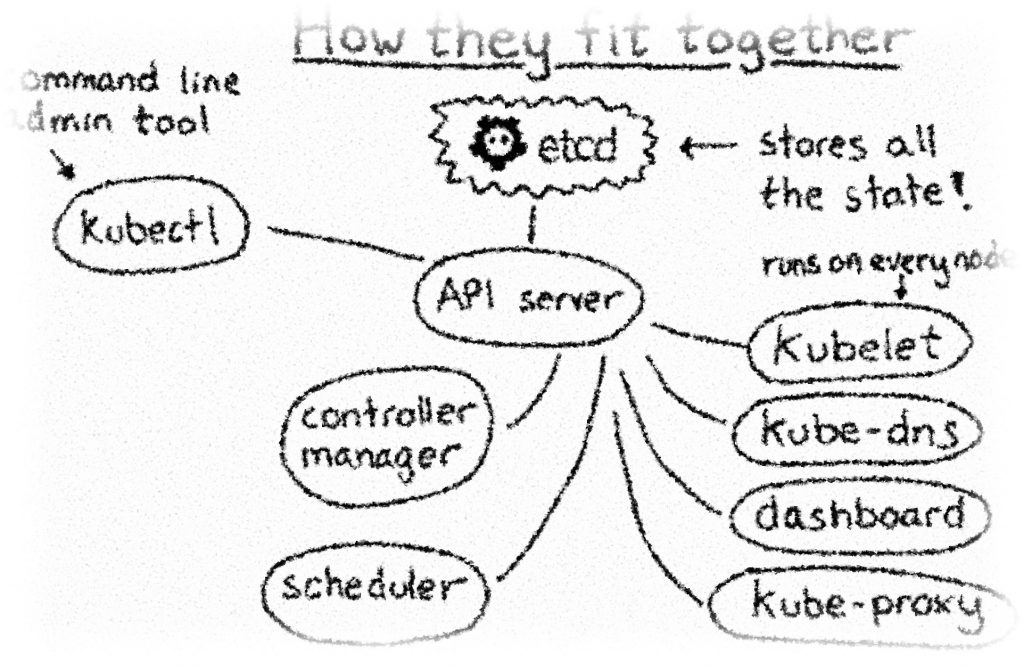Adding Project Eirini to Cloud Foundry
We are showing something very cool at the upcoming Cloud Foundry Summit in Basel Switzerland. In a lightning talk and in our booth you will be able to see the Cloud Foundry incubation project Eirini. This is something to take a look at as project Eirini is a very interesting and impressive effort.
What is it, and why should you care?
Project Eirini (SUSE being a happy participant) is a Cloud Foundry incubation project that essentially gives Cloud Foundry the ability to use Kube for its orchestration. At a technical level this is cool because now Cloud Foundry workloads/applications will be deployed directly into and orchestrated directly by Kubernetes. From a workflow point of view, you are still building applications with the simplified and automated approach of Cloud Foundry. But now, from an operational point of view, this automated build-to-deployment process results in truly native Kubernetes based applications. Hence, your operations staff will be able look at and understand these applications just like they could any other class of Kubernetes application.
This is an important step.
Today with SUSE Cloud Application Platform, we are providing you a completely containerized and Kubernetes native version of Cloud Foundry. Our goal has always been to provide you a way to leverage the streamlined developer automation and application viewpoint of Cloud Foundry, but do it for Kubernetes. And we have done this with our containerized approach. But we are always interested in the different ways that Cloud Foundry and Kubernetes can be more closely aligned. With project Eirini we not only see a more native approach to using Cloud Foundry with Kubernetes, but we see a better way to use Cloud Foundry for Kubernetes.
SUSE Cloud Application Platform is itself a Kubernetes application. When installed into a cluster, it provides the full automated developer / user experience as well as the application management viewpoint that comes from Cloud Foundry, but delivers applications that  run in your Kubernetes clusters. This is a clean and complete use of the Cloud Foundry user experience applied to pushing applications into a Kubernetes cluster.
run in your Kubernetes clusters. This is a clean and complete use of the Cloud Foundry user experience applied to pushing applications into a Kubernetes cluster.
What the Eirini project is designed to bring is the equivalent operator experience. Now the actual ‘plumbing’ running the applications within the cluster is nothing more than a set of managed Kubernetes orchestrated workloads. The entire platform is now greatly simplified without any loss of capabilities.
By making the whole orchestration environment Kubernetes based, the platform is not only easier to manage, it better leverages the more prevalent set of skills available in the market. This completes the promise on the operations side and leverages the most ubiquitous orchestration infrastructure in IT.
Project Eirini is a great direction for the future of both Kubernetes and Cloud Foundry. Kubernetes as the ubiquitous orchestration runtime it is and Cloud Foundry for its ability to efficiently push applications from code into production in one well managed step. If you are interested and on GitHub, you can track the Eirini project at: https://github.com/cloudfoundry-incubator/eirini
Related Articles
Oct 30th, 2023
AI Test Drive: Hybrid Alternative to the Cloud?
Nov 01st, 2022
Comments
[…] Eirini was contributed by IBM and receives contributions from SUSE and SAP. Eirini’s goal is to offer a Cloud Foundry operator the choice of using native Kubernetes for container scheduling instead of Cloud Foundry’s Diego. This makes a ton of sense for SUSE Cloud Application Platform — because it already runs inside Kubernetes, adopting Eirini would remove what we believe is an unnecessary layer of complexity (using Diego in our product essentially means that we are running application containers inside of Diego containers). That’s why we announced at the Summit that we would be adopting Eirini for future versions of SUSE Cloud Application Platform. As soon as it’s fully baked and tested, we’ll be shipping it. My colleague, Ron Nunan, posted some additional background information on this last week. […]